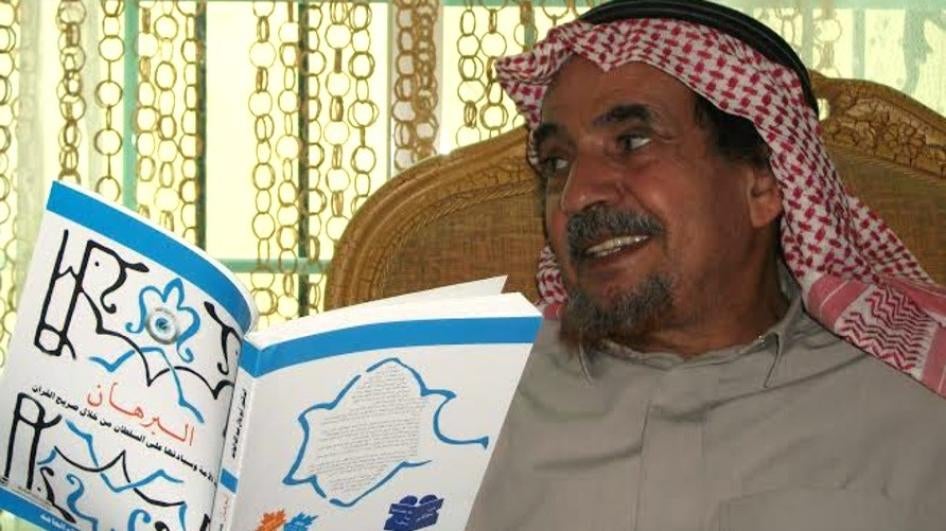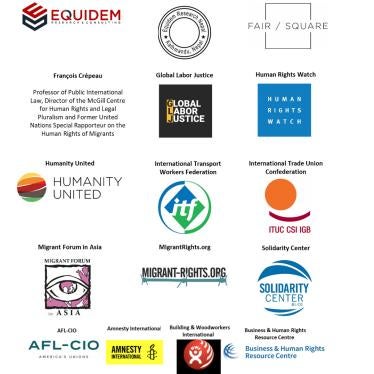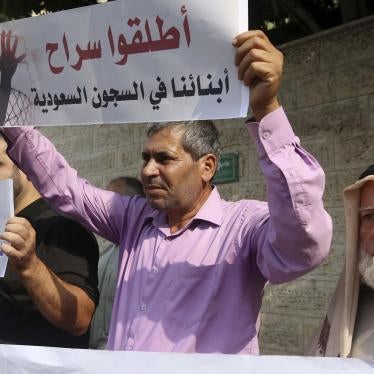(Beirut) – A leading Saudi human rights figure has died after suffering a stroke on April 9, 2020, Human Rights Watch said today. Abdullah al-Hamid, 69, spent the final seven years of his life in prison following his conviction in March 2013 on charges relating to his peaceful political and human rights activism. His death was announced by the Saudi human rights organization ALQST.
Al-Hamid was a professor, political reformist, and a co-founder of the Saudi Civil and Political Rights Association (ACPRA). He advocated for human rights for over 25 years, and Saudi authorities had detained him more than six times since 1993. Saudi human rights activists say that al-Hamid did not receive adequate medical care prior to his death.
“We have lost one of the leading lights of Saudi Arabia’s human rights movement, but his message and the many activists he inspired will live on and continue pushing for reform,” said Michael Page, deputy Middle East director at Human Rights Watch. “It is unconscionable that Abdullah al-Hamid was forced to spend his final years in prison merely for criticizing Saudi Arabia’s rampant human rights abuses.”
In 2009, al-Hamid and other academics and rights activists co-founded ACPRA in response to the worsening human rights situation in Saudi Arabia. The organization called for Saudi Arabia to apply the principles of the Universal Declaration of Human Rights. It recommended creating a constitutional monarchy with an elected parliament and transparent and accountable legal institutions. ACPRA also helped many families sue the Interior Ministry for breaches of Saudi law in arbitrary detention cases.
In April 2012, he and other activists circulated a petition that called for the resignation of the then-Interior Minister Prince Nayef due to the number of detainees who allegedly suffered ill-treatment during his tenure. The authorities initiated criminal proceedings against him and his colleague Mohammed al-Qahtani on charges that included “sowing discord and disturbing public order” as well as criticizing the country’s religious leaders and judicial system.
On March 9, 2013, the Criminal Court in Riyadh sentenced al-Hamid to five years in prison and added an additional six years from a previous sentence that the late King Abdullah had commuted in a conditional royal pardon in 2006. The court ordered the confiscation of his assets, the dissolution of the ACPRA, and the closure of his social media accounts. He served his sentence in al-Ha’ir prison near Riyadh.
According to ALQST, al-Hamid’s health condition had deteriorated in recent months, and authorities delayed a heart operation a doctor told al-Hamid he needed in early 2020. ALQST said that authorities took steps to prevent al-Hamid from discussing his health condition with his family. He suffered a stroke on April 9 and remained hospitalized in a coma until his death on April 24.
Mohammed al-Qahtani, another co-founder of ACPRA, was sentenced alongside al-Hamid to 10 years imprisonment and continues to serve his sentence in al-Ha’ir prison. Along with ACPRA members, other Saudi human rights activists, women’s rights activists, and peaceful dissidents are either serving harsh sentences solely for their human rights work or detained on accusations that relate to such work. They include: Waleed Abu al-Khair, Loujain al-Hathloul, Nouf Abdelaziz, Mayaa al-Zahrani, Samar Badawi, Nassema al-Sadah, Abdulaziz al-Shubaily, Fadhil al-Manasif, Abdulkareem al-Khodr, Fowzan al-Harbi, Raif Badawi, Saleh al-Ashwan, Abdulrahman al-Hamid, Zuhair Kutbi, Alaa Brinji, Nadhir al-Majed, Issa al-Nukheifi, Essam Koshak, Mohammad al-Otaibi, Abdullah al-Attawi, and Fahad al-Fahad.
“Dozens of human rights and women’s rights activists continue to remain detained solely for their peaceful activism, and often after unfair trials. They should all be released immediately and unconditionally,” Page said.









